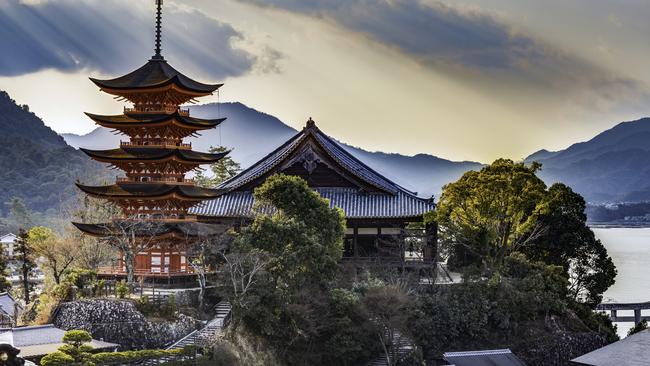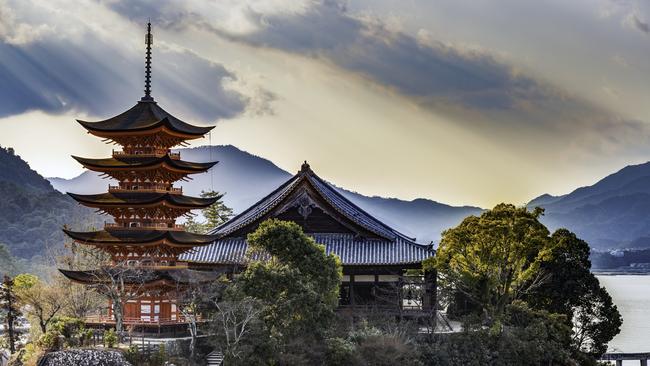Japan the most searched for travel destination on Google for Aussies
To mark two decades in Australia, search engine Google has revealed its top searched for travel destinations — as well as the types of travel Aussies are looking at. See the full list.

Of all the places to travel in the world, there is one that has commanded more Google search queries by Australians than any other.
Data shared by the search engine to mark two decades in Australia revealed Japan was the most googled travel destination in that time, followed by New Zealand.
Australia ranked sixth behind Tasmania at number five, with Thailand and Vietnam third and fourth.
Experience Co managing director John O’Sullivan said during his time as Tourism Australia chief executive, Japan was regarded as the ideal travel destination with its mix of interesting culture, amazing food, safety, skiing and events.
“It’s had a huge boom in ski-related travel; the number of Australians going there rivals the US and Europe, and it’s a destination that’s easy to get to, not a lot of jet lag and the air capacity prior to Covid was really strong,” Mr O’Sullivan said.

“It was probably the destination we (at Tourism Australia) held up as the marker for getting everything right, and it’s also easy to get around.”
In 2019, Japan ranked as Australians’ seventh most popular overseas travel destination, with more than half a million Aussies spending an average of two weeks there.
After staging the 2020 Olympics in 2021, interest has only grown in the country with travel agents reporting huge demand for Japan ahead of its October 11 border reopening.
Asian tourism specialist Lilly Choi-Lee of TravConsult said it was probably no coincidence that the interest in Japan had grown in step with the rise of social media.
She said as a resident of the country in the late-1990s, Australian visitors were a rarity but that had changed in the last two decades.
“People weren’t that interested before that but then sushi became more mainstream and that sparked interest in other Japanese food, and then social media started to take off,” said Ms Choi-Lee.
“Imagery of Japan on Instagram and Facebook really helped sell it, and as a result it wasn’t so much the older market that took to Japan but the younger market.”
Australian Federation of Travel Agents CEO Dean Long said the search data was certainly representative of a younger demographic, building their own travel itineraries.
“Other than Japan and New Zealand, the sort of places in that (Google) list are usually one-time holiday destinations, they don’t have a huge level of repeat visitation,” Mr Long said.
“The other commonality is that most have a lot of cultural difference to what we do at home, so it makes sense that people are googling more exotic destinations to learn more about them.”
Mr Long said Tasmania also attracted more of a “self-explore market” than other states, which might explain the Apple Isle’s high ranking on the Google search list.
Mr O’Sullivan said Australia’s relatively low place on the list was reflective of “Australians thinking they know Australia” whereas New Zealand was typically “our first overseas trip”.
The Google analysis also looked at the most searched for types of travel, with “time travel” coming in first, ahead of international travel, student travel and last minute travel.






To join the conversation, please log in. Don't have an account? Register
Join the conversation, you are commenting as Logout